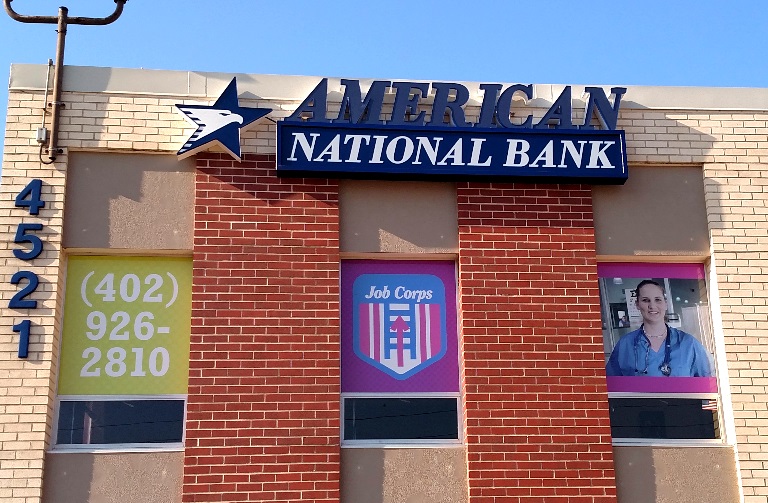Omaha B2B Magazine
Omaha Banks On The Independents: Pandemic illustrates how our locally owned financial institutions have thrived across decades
On April 3, the federal government rolled out the Paycheck Protection Program to help businesses stay afloat as the COVID-19 pandemic took hold. That same day, Omaha’s independently owned regional banks rolled up their sleeves and burned the midnight oil.
 Bank staffers and top executives alike worked 18 hours on evenings and weekends to ensure their loyal business customers received timely funding to keep businesses open and employees on the payroll.
Bank staffers and top executives alike worked 18 hours on evenings and weekends to ensure their loyal business customers received timely funding to keep businesses open and employees on the payroll.
Omaha bank executives say this personal pride in helping customers they often know by first name is just the latest example of how locally owned banks have helped build Omaha for more than 160 years.
For Security National Bank, the result meant loans to all Omaha-area businesses that qualified. The story is similar across the state: Nebraska, as well as North Dakota, had the higher per-1,000-business penetration of Small Business Administration and Payment Protection Program loans as any state in the union.
“It was an all-hands-on-deck effort, but we were able to guarantee our customers that they would get their funds through a bold bank effort,” said Jim Landen, the chairman and CEO of the bank started by his father, Clarence “Mickey” Landen Jr., in 1964.
Landen’s comments are echoed by executives at American National Bank, the oldest Omaha independent bank that shares an anniversary year (1854) with the city itself.
“When you’re a community bank, you have a different connection to the recipients who are receiving those funds. Our staff took ownership of the program in a way that wouldn’t necessarily be universal,” says David Ridder, chief credit officer. “We had multiple lines of business not involved with daily lending operations pitching in to make sure there were as many applications processed as we could so they could take advantage of the program.”
The Local Touch
The banking industry has obviously changed dramatically over the decades, from new types of investment and borrowing tools and strategies to the explosion of online banking and new technologies.
Omaha banks have strived—better than in most states and metros—to offer full-service banking with the selling proposition of personal relationships with bankers and executives.
“Our ownership and executives live in the communities we serve,” said Jason Hansen, American National Bank president. “We are well positioned to understand the challenges within our business community and provide greater access and flexibility in offering our resources and solutions.”
Competitive Edge
Landen says his family’s success in running Security National lies in superior customer service, involvement in the community and timely acquisitions that meet their long-time clients’ needs. Acquisition decisions are often made based upon feedback from customers about the types of services they would like to see.
In 1995, this meant buying a mortgage company. In 2014, this meant buying Kirkpatrick Pettis from Mutual of Omaha so the bank could offer trust and wealth-management services.
“We just don’t see the value in building a business to sell it. It never crossed our minds that it would be an appropriate thing to sell,” Landan said.
But keeping the bank in the Landan family means keeping up with the times. Landen credits heavy investments in mobile banking and internet-based solutions and delivery channels for help keeping the bank alive.
“It’s all about the client’s preference,” says Jim Heurter, senior vice president of business banking and a third-generation Landan family member.” Many love to come in to the branches, and just as many others want to do everything on the mobile app. It’s important to have the options and not a one-size-fits-all approach.”
A Nebraska Success Story
Nebraska, and specifically Omaha, has a higher level of independent banks serving towns and cities. There are 161 such banks in Nebraska. Compare that, Landen says, with much more populous Arizona, which only has 40.
The top four U.S. banks (Citigroup, JP Morgan, Bank of America, and Wells Fargo) control about 60 percent of the U.S. banking industry. Only one (Wells Fargo) has a significant office presence in Omaha.
“Omaha is very unique,” said Landan, “You have a lot of independent banks that tend to be family owned. We are fortunate the market has been like this in the place we call home.”
Life After COVID
Like any other industry, the pandemic poses unprecedented challenges to independent banks. Perseverance and confidence in business plans and customers are the keys to moving forward when life returns closer to normal.
“We have confidence in the communities we are engaged in,” Ridder said. “They are going to make it through the COVID crisis, and there will be winners and losers. But in the Midwest, they have weathered every storm that has come their way.”
Landan says online banking, phone calls and videoconferencing are great tools for dealing with the pandemic, but admits to longing for the return of more in-person, one-on-one service.
“It’s a lot more fun to have the human interaction,” he said. “Our systems are great, but it isn’t the same as shaking somebody’s hand and the opportunity to sit with them in person.”
